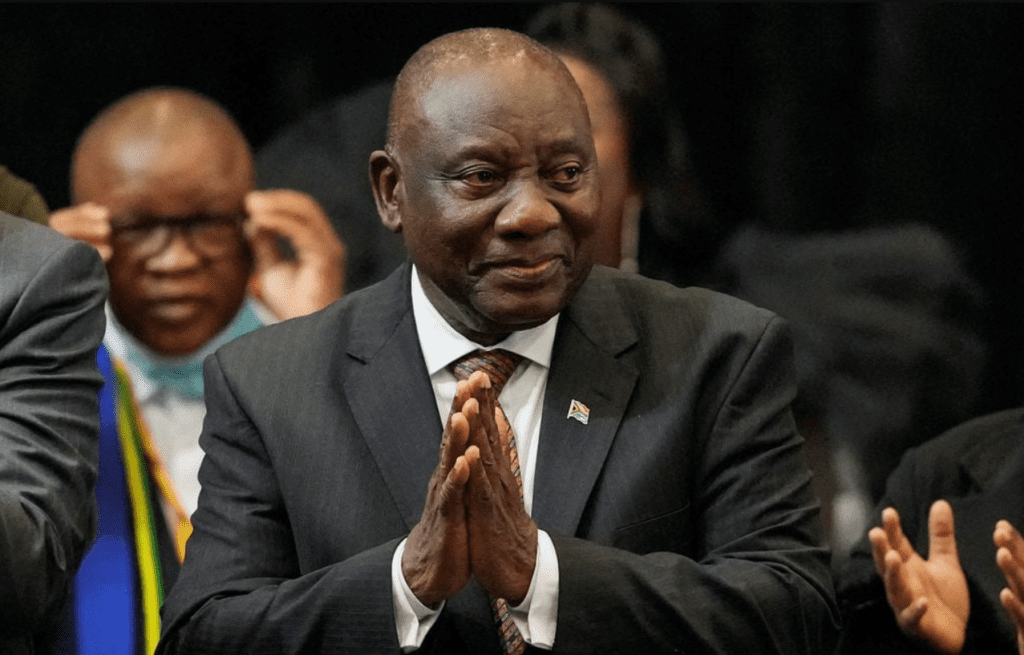Cyril Ramaphosa will be inaugurated as South Africa’s president during a ceremony in Pretoria on Wednesday, following a coalition agreement formed by the weakened African National Congress (ANC).
Ramaphosa, who is 71, was overwhelmingly re-elected by lawmakers last week after the general election on May 29 resulted in no clear winner.
“It will once again be a privilege and a pleasure to once again service this nation,” Ramaphosa stated in parliament on Friday.
His second five-year term will officially commence on Wednesday at the Union Buildings, the seat of government, where the event will be attended by MPs, foreign dignitaries, and leaders from religious and traditional sectors.
The presidency announced that nearly 20 heads of state and government from neighboring countries are expected to attend, with additional confirmations coming in.
High-level representatives from countries including China, Egypt, Cuba, Zimbabwe, Angola, and the State of Palestine will be present.
The inauguration will feature musical and artistic performances, a 21-gun salute, and an air force flyover.
Chief Justice Raymond Zondo of the constitutional court will administer the oath, and Ramaphosa will then deliver his inaugural address.
Third Time Taking the Oath
This will mark the third time Ramaphosa has taken the presidential oath.
Initially a trade unionist who transitioned into a successful businessman, he first assumed power in 2018 after Jacob Zuma was ousted amid corruption allegations.
Ramaphosa was then elected for a full term in 2019. In South Africa, the parliament is elected by the public and subsequently selects the president.
Ramaphosa had pledged a “new dawn” for the nation, initiating an anti-corruption campaign and beginning reforms of the struggling energy sector.
Despite these efforts, his tenure has seen continued economic difficulties, persistent crime, and rising unemployment, which has reached 32.9 percent.
In the most recent election in May, Ramaphosa led the ANC to a weakened position, securing only 40 percent of the vote compared to 57.5 percent five years earlier.
This was the first time since the 1994 democratic transition that the ANC lost its absolute majority in parliament, prompting the party to seek coalition partners to maintain power.
The ANC has formed a national unity government with several other parties, including the center-right Democratic Alliance (DA), the Zulu nationalist Inkatha Freedom Party, the anti-immigration Patriotic Alliance, and the small center-left GOOD party.
This coalition enabled Ramaphosa to defeat a last-minute challenge by leftist politician Julius Malema, with 283 out of 400 National Assembly members voting for him.
Ramaphosa is expected to announce his new cabinet shortly after his inauguration, as discussions with coalition partners are ongoing.

